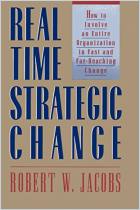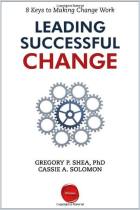
Terms of Engagement
Changing the Way We Change Organizations
Read or listen offline
Recommendation
Richard H. Axelrod presents a model for creating more effective change in an organization by involving everyone in the change process from the beginning. He suggests setting up large conferences with cross-functional, multidisciplinary planning and implementation groups. As this implies, he advocates combining planning and implementation, rather than creating parallel processes. He argues that the top-down approach of having a leader who sells a vision to the organization doesn’t work, although the leader should be involved in the conference process. It seems shortsighted to dismiss visionary leadership, with its successful track record in various settings, yet Axelrod has organized his ideas clearly. He provides tools for using his approach, including anecdotal success stories, how-to inserts, and guidelines for following this process. His model shares some characteristics of other conference planning approaches, including “Future Search.” However, getAbstract recommends this engagingly written book for its appeal to executives and top managers who seek intriguing planning and change strategies.
Take-Aways
About the Author
Richard H. Axelrod and his wife, Emily, developed the conference model. Axelrod worked with Peter Block and the Association for Quality and Participation to develop the School for Managing, an innovative approach to management education. He has worked as a consultant and teacher for more than 25 years. His clients have included British Airways, Bell South, First Union Bank, Harley Davidson, Hewlett-Packard, and Intel.


















Comment on this summary or Comenzar discusión